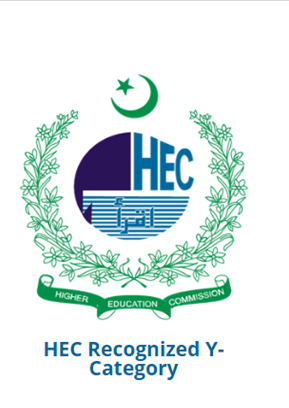Contingency framework of Management Accounting System in SMEs of Pakistan
Array
Keywords:
Contingency Model, Contingency Theory, Company Performance, Management Accounting.Abstract
This study aims to investigate potential contingent factors which influence Management Accounting (MA) and Company Performance (CP) in SMEs operating in the manufacturing sector of Pakistan. Data was collected from 102 SMEs by using questionnaire, which was adopted from the various researches. Management Accounting (MA) and Company Performance (CP) are endogenous variables, whereas Advanced Manufacturing Technology (AMT), Firm Size (FS), Qualified Accountants (QA), Strategy (STA) and Structure (STR) are exogenous variables.
Reliability and validity was analyzed through Exploratory and Confirmatory factor analysis respectively. AMOS 23 was used to test the relevancy and hypotheses of designed contingency model by structural equation modeling (SEM). The results revealed that advanced manufacturing technology (AMT) and structure (STR) are significant contingent factors that have a positive impact on management accounting (MA). Firm size (FS) has a significant but negative impact on company performance (CP) whereas strategy (STA) has a significant and positive impact on company performance (CP). Qualified accountant shows insignificant impact on management accounting, whereas management accounting (MA) and structure have also shown insignificant impact on company’s performance.
This research has filled the knowledge gap found in the literature with regards to SMEs in Pakistan. It will create awareness among the SMEs to focus on contingent variables and their effect on MA and performance, which ultimately enables the SMEs to operate efficiently in the competitive environment. This research will also help the SMEs owners, policy makers and practitioners in decision making.





